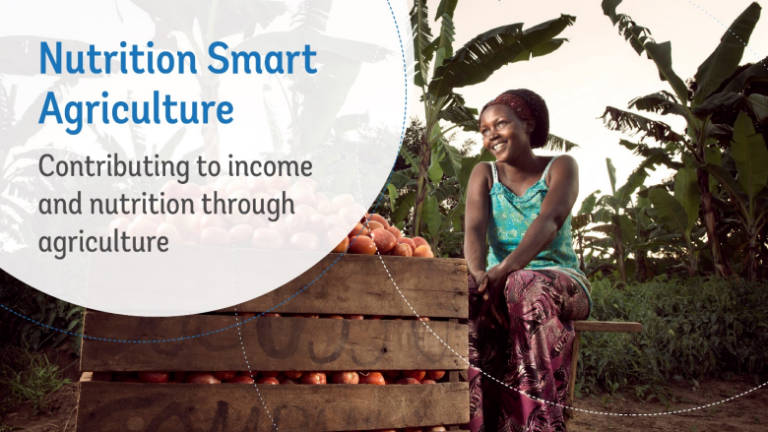How is nutrition-smart agriculture different from “nutrition-sensitive agriculture”?
Nutrition-sensitive agriculture is a holistic, multi-sectoral effort to ensure the production of a variety of affordable, nutritious, culturally appropriate and safe foods in adequate quantity and quality to meet people’s dietary needs in a sustainable manner.
Nutrition-smart agriculture is a subset of nutrition-sensitive agriculture. It focuses on the production side of the food value chain, where farmers and agribusinesses decide “what” and “how” to produce and where the agricultural sector designs and implements actions and policies to improve nutrition. NSmartAg is an approach that identifies practices and technologies and channels public investments in agriculture towards a dual objective: improving outcomes for farmers and agribusiness while also helping to improve the nutrition of the local population. This approach is a building block of food systems that promote healthy people, a healthy planet and healthy economies.
Although there are existing agricultural technologies and practices, such as biofortification, that can be considered “nutritionally smart” (fulfilling the dual purpose), this concept is new and therefore not always explicitly supported by existing public agricultural policies and programs.
Country profiles developed for the Democratic Republic of Congo, Guatemala, Haiti and Mozambique provide an overview of nutrition-smart agricultural technologies and practices across the country and identify entry points for their adoption to achieve improve outcomes for farmers and agro-entrepreneurs.
